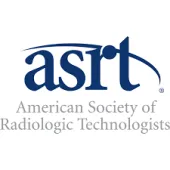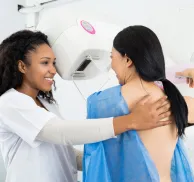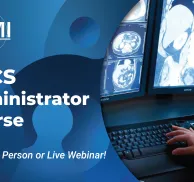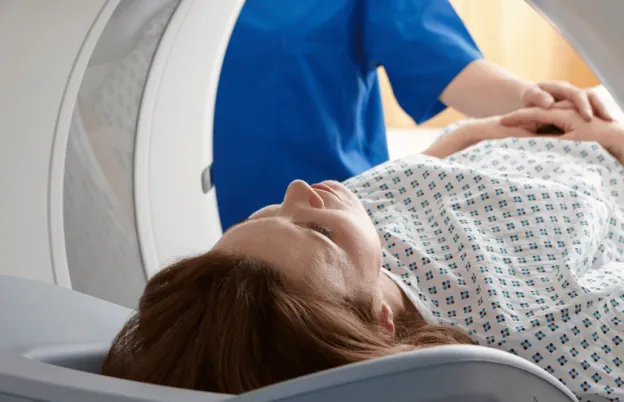
CT Cardiac Imaging and Angiography
About this Program
Aspects of clinical CT angiographic scanning, including CT cardiac and peripheral-vascular techniques are becoming the exams of choice for determining the state of the vascular system for many intermediate and low-risk patients. It is important for technologists performing these complicated exams to have a firm understanding of the concepts and skills required to produce high-quality, diagnostic exams and images for radiologists, interpreting cardiologists and clinicians.
This webinar will provide you with a firm knowledge base on the origins of CT angiographic, cardiac and peripheral-vascular techniques.
Educational Objectives
After this webinar, participants will be able to:
- Understand the basic concepts surrounding the technology for CT Angiography and Cardiac CT.
- Develop a firm understanding of the technical factors involved in acquiring high-quality, diagnostic exams and images for interpreting physicians. .
- Provide both clinical and technical knowledge to enhance the performance of peripheral-vascular CT acquisitions.
- Understand and demonstrate basic knowledge of ECG tracing.
- Understand and recognize basic normal and abnormal rhythm patterns.
- Know the current clinical indications for ordering Cardiac CT and the risks versus benefits of providing this exam.
- Understand the implications of Dose Management as it relates to Angiographic and Cardiac CT exams and demonstrate the decision-making process in choosing the correct protocol for patient-specific conditions.
Schedule
What this course will cover
Overview of Origins of CT Angiography
- What drove the change in CT design and development
- Calcium scores
- Predictive values
- Risks/benefits
Cardiac Anatomy/Understanding ECG
- Basic cardiac anatomy
- Electrophysiology
- ECG
Understanding Patient Selection in Cardiac CT
- Answering the clinical question for CCTA – protocol choice
- Chest pain
- Heart defects, grafts, stents
- Acquisition of Cardiac CT data sets
- Prospective and retrospective cardiac scans
- Gating modes
- Selection
- Patient prep
- Heart rate control
- Acquisition techniques
- Example protocols
- Contrast media considerations
- CT Dose as it Relates to Patient Selection
- Electrical issues
- Age
- Calcium
- Dose calculation
FFRCT (Fractional Flow Reserve CT)
- Clinical value of FFRCT
- Data quality
CT Angiography - Non Cardiac
- Carotids and cerebral
- Aorta and abdominal organs
Runoffs
- TAVR
- Other vascular studies
3D Display and Post Processing
- Post processing- CTA
- Overview of workstation post processing
- Post processing workflow
- Creating, saving, reporting and planning
- 3D processing - terminology
Audience
Who should attend?
- Vascular, Interventional and Cardiac CT Technologists
- Technologists wanting to expand their knowledge in Vascular and Cardiac CT
- Radiologic Technologists
- Medical Imaging Specialists
- Educators
Program Faculty
Meet your presenter(s)

Mark Bake
DBA, R.T.(R)(CT)
Mark Bake is the Chief Academic Officer and a Professor for Bellin College in Green Bay, Wisconsin. He has taught courses related to equipment, ancillary imaging, CT imaging, cross-sectional anatomy, patient care, and has been educating radiography students since 2008. Mark is registered in radiography and computed tomography and has worked in a variety of positions in his career, including a staff technologist and manager in CT. He holds a certificate in radiography, a BS in applied science, an MS in healthcare management and organizational development, and a DBA with a focus on healthcare management and leadership.
Bake is active in education focusing in the healthcare field; in particular, he has developed multiple initiatives geared toward educating high school students about healthcare careers that utilize various hands-on experiences, and has successfully secured grants for medical imaging equipment for Bellin College. In addition to being an active educator and presenter, Dr. Bake has published in various journals and has lectured at state, regional, and national conferences during his career.
Credits
Accredited training programs

ASRT Category A
This program provides 6 hour(s) of Category A continuing education credit for radiologic technologists approved by ASRT and recognized by the ARRT and various licensure states. Category A credit is also recognized for CE credit in Canada. You must attend the entire program to receive your certificate of completion.
Tuition
Convenient payment options available
| Audience | Price | Early Price | Member Price | Member Early Price |
|---|---|---|---|---|
| Technologist | $149.00 | $143.00 | $135.00 | $129.00 |
Early Pricing Guidelines
Qualifying 'Early' registrations must be made at least 4 days in advance for the program.
Cancellation Policy
Seminars/Webinars 8 hours of credit or more
Refunds, minus a $30 processing fee, will be granted for cancellations received at least 3 days prior to the program. Cancellations received within 3 days of the program will receive a credit toward a future MTMI program, minus the $30 processing fee. No refunds will be made after the program starts. MTMI reserves the right to cancel any scheduled program because of low advance registration or other reasons. MTMI’s liability is limited to a refund of any program tuition paid. MTMI recommends that attendees use refundable airline tickets. In case of cancellation of a program for any reason, MTMI is not responsible for travel costs incurred by attendees including non-refundable airline tickets. When offered, WEBINAR ATTENDEES that cannot log in due to unsolvable technical issues beyond their control will be eligible for a full refund.













